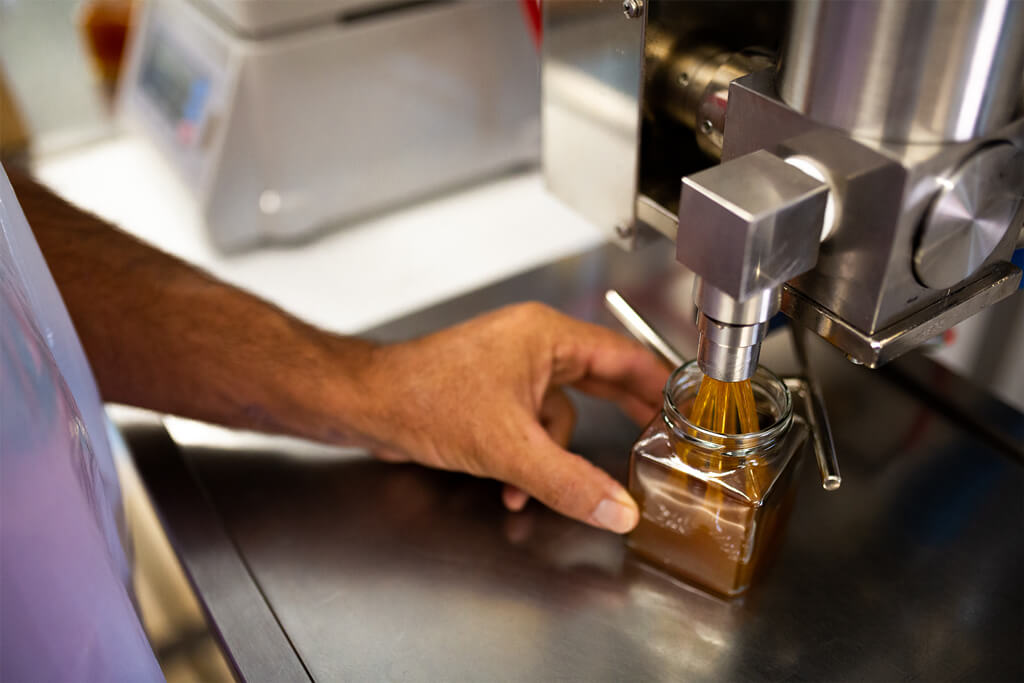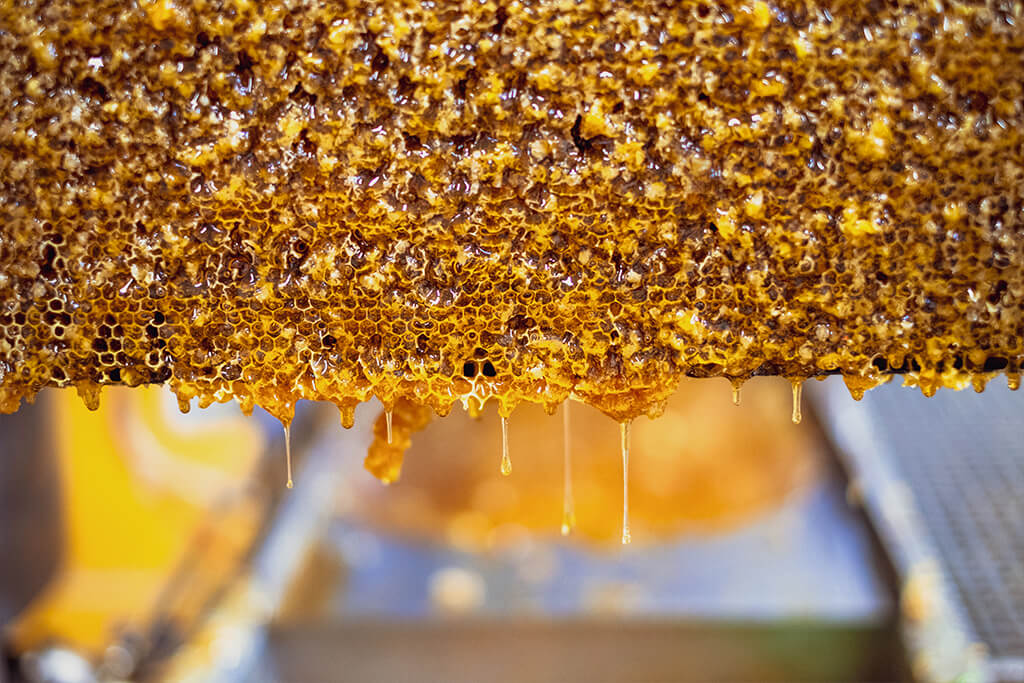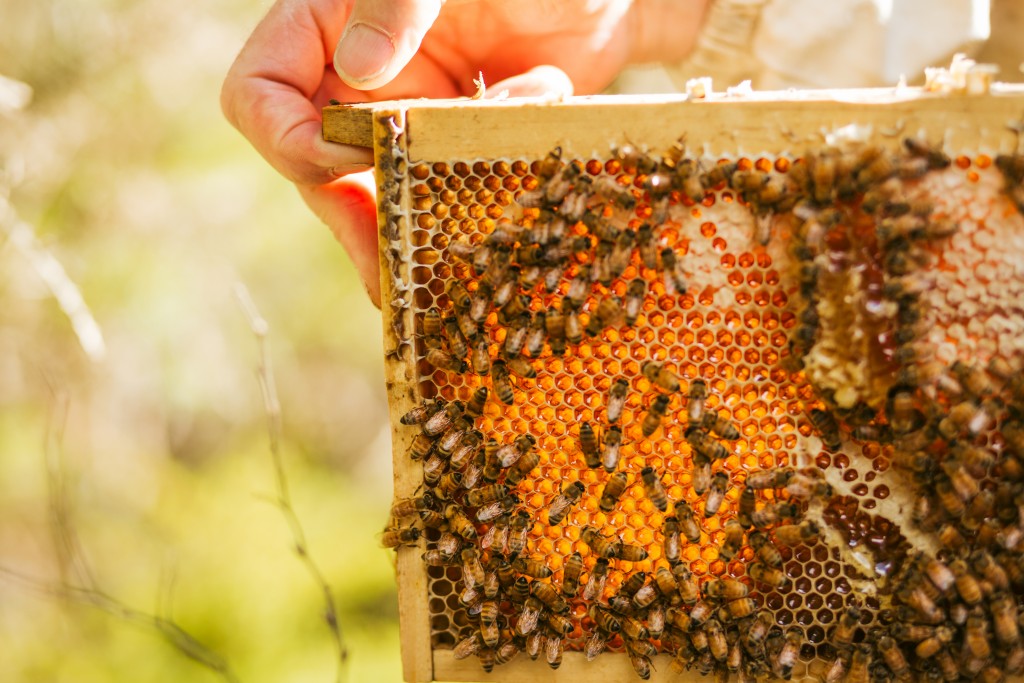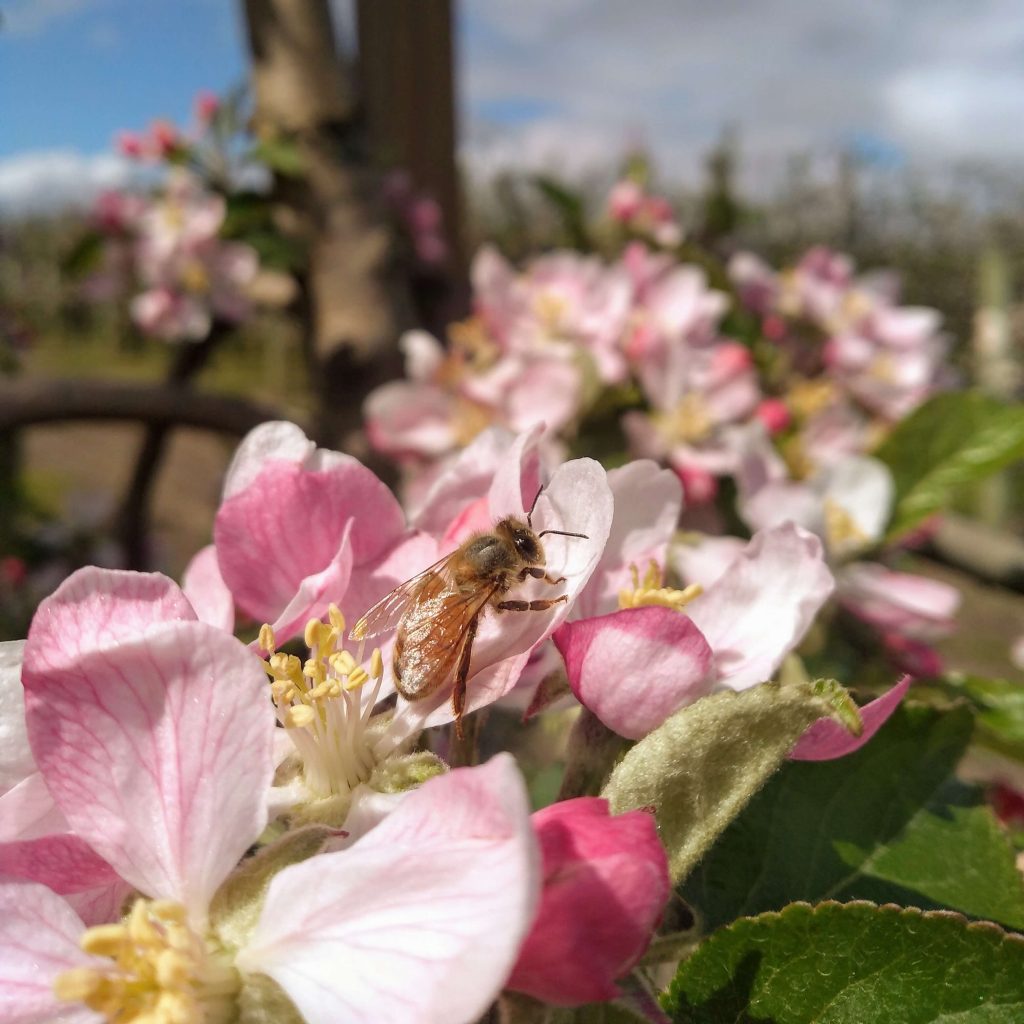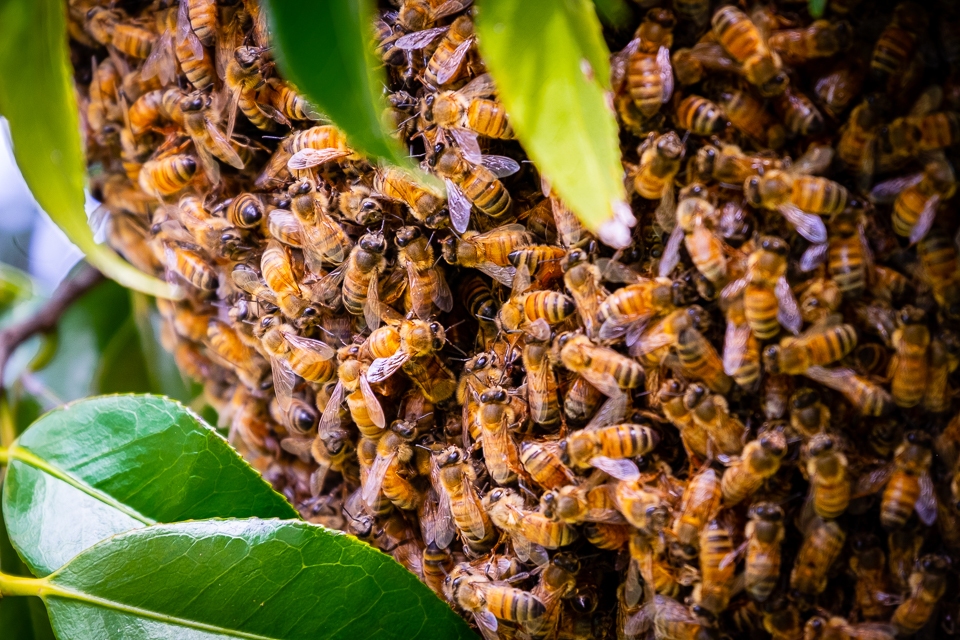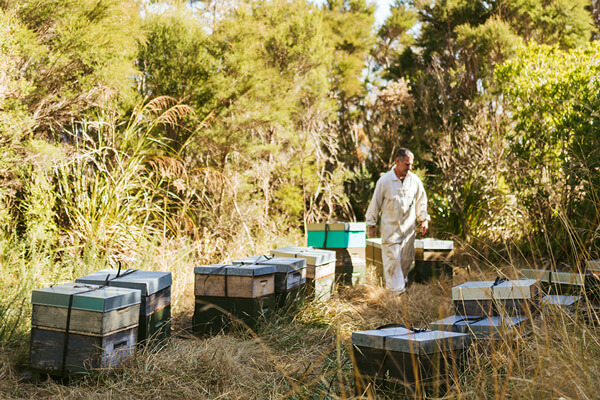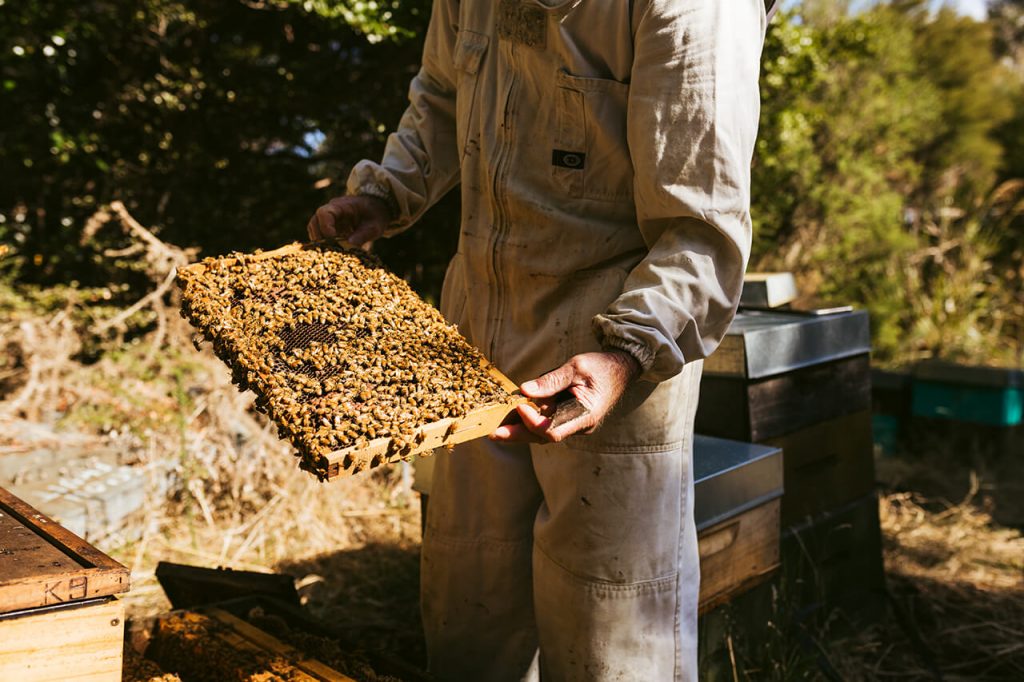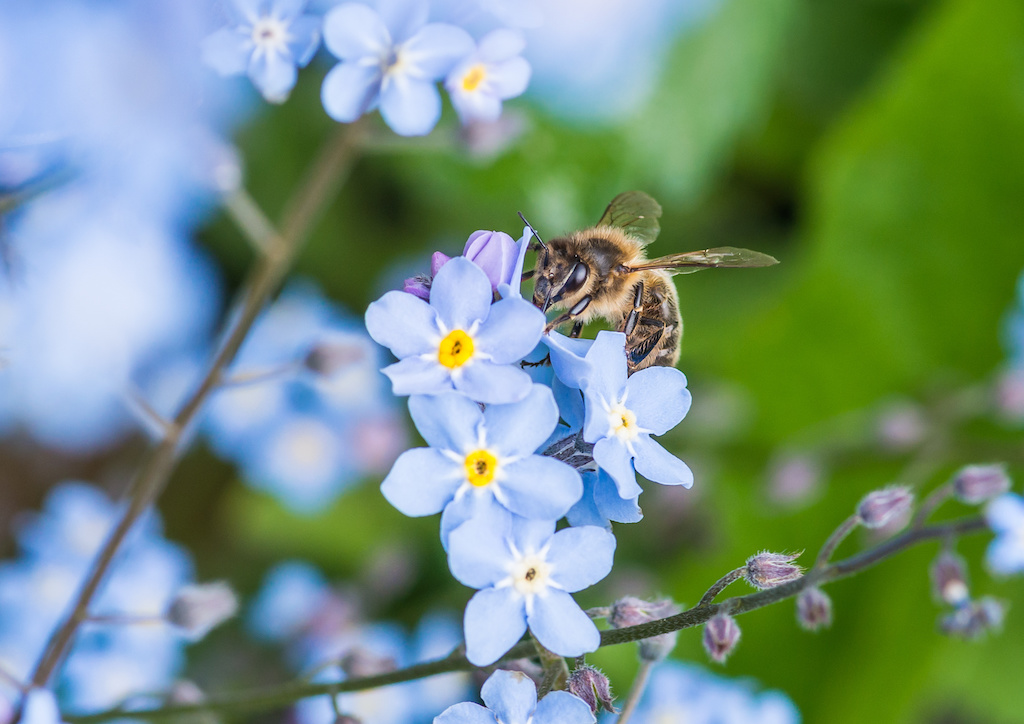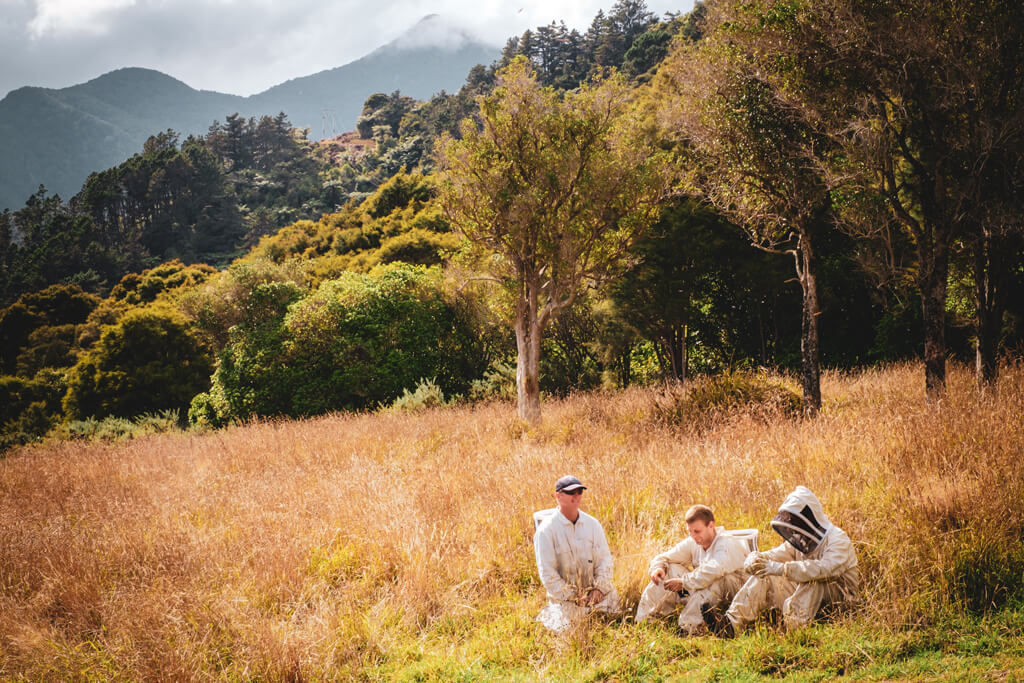
2020 is Nearly Done – Still Happily Buzzing Along
The sun is out, the spring winds have dropped, and our bees are happy. It’s time to give a huge sigh of relief and reflect on the crazy year that was.We New Zealanders are so privileged to be able to enjoy a Christmas spent with family and friends. As we buzz about looking for festive treats, our bees are foraging for goodies too. At this time of year, they are continuing to work the Kāmahi and are just beginning to discover the early flowering Mānuka. The busy little creatures are so intent on their honey collection that they pay no attention to us at all. So, we will pretty much leave them to it over the Christmas break — just checking in once or twice, to make sure they are happily working and have strong hives. As our team takes time to reflect on

